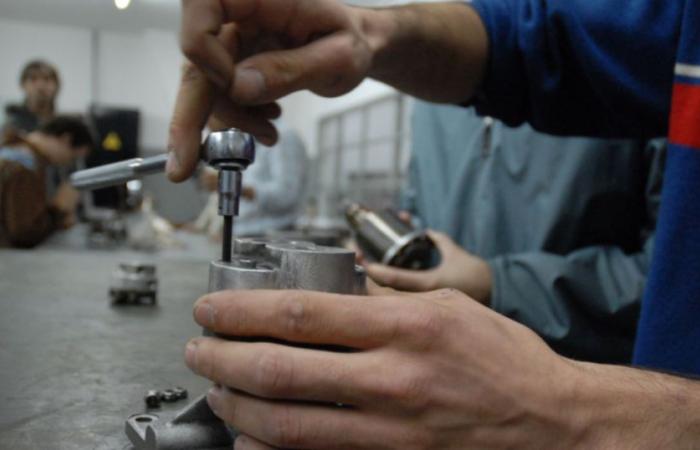The recent survey of education permanent (non-formal) carried out by the Observatory of the Argentine Chamber for Vocational Training and Labor Training reveals a dynamic and constantly evolving panorama. As the world moves towards greater adoption of technologies, non-formal education in Argentina is not far behind. A notable 60% of training sessions no longer require exclusive presence, allowing students to access training from anywhere, as long as they have an internet connection.
The survey highlights that approximately 300,000 students a year choose short training courses, of which more than 82% do not exceed nine months in duration. This underlines a trend towards agile and specialized trainingadapted to the immediate needs of the labor market.
We live in an era where technology has permeated almost every aspect of our lives. From consumption to social interaction, we are increasingly “connected.” This reality does not exempt education. The increase in distance training reflects not only an adaptation to current circumstances, but also a necessary evolution to remain relevant and accessible.
However, this digitalization also brings with it significant challenges. Reliance on technology can exacerbate problems such as addiction, depression and social fragmentation. It is estimated that we spend around 10 hours a day online, with 30% of that time dedicated to social networks. The algorithmization of society, as well as the exacerbation of individualism, among other consequences, must alert us to where we want to direct our technological innovations and put them at the service of social well-being and not of the few who profit from these consequences.
In a world where technology is advancing rapidly, we have the opportunity to use this connectivity to foster equality and human autonomy. Technology at the service of education can be a driving force for a more equitable and democratic societyif implemented strategically.
Argentina has a great opportunity in the current global context, the product of years of public education at all levels and international ranking in higher education. The demand for specific skills and professional training is increasing. However, the lack of a national strategy that promotes educational equity can deepen existing inequalities. , leaving our young people at the mercy of a system where their future depends more on their place of residence than on their potential and effort. It is crucial to have a Ministry of Education that focuses on promoting public policies that favor inclusive education and legislating on the use of technology to guarantee its positive impact on society. It is essential to think about technological innovation, guarantee connectivity and computers in every corner of the country, and advance digital literacy, which includes topics such as ethics and political questions about where we want to focus our innovation.
Today we find ourselves at a critical point where the value of teaching is being economically devalued. This discourages future educators and sends a negative message to our students. We must change this narrative, valuing and respecting our teachers, and recognizing (symbolically and salary-wise) their essential role in the training of future generations.
Investing in education must be a priority on the public agenda. Not only for its economic benefits, but also for its impact on the quality of life of individuals and society as a whole. Education improves job opportunities, fosters critical thinking and curiosity, and strengthens social relationships in a world increasingly mediated by algorithms. In individual terms, it is an increase in job and professional opportunities, but also an improvement in quality of life. It provides tools to question what is happening around us, to ask new questions and to have other curiosities. It is an opportunity to be better and to better navigate the time we have in life. Collectively, success is also difficult to quantify. Investment in education changes the morphology of social relationships, providing individuals with better tools to relate. In a time where society is mediated by algorithms, we need our best critical skills to be able to decide for ourselves.
When we talk about education, we talk about solutions. Thinking about educational policy with a strategic perspective means solving many other issues, ranging from the social to the economic and productive. Thinking about what type of society we want to build is also reflecting on Argentina’s long-term productive model. Education is one of the best opportunities that Argentinians have to improve the productivity and democratic quality of the country. Democracy is the best ground for the creation of new knowledge. Ignoring this path is even more mortgaging our future.
#Argentina






